Royal baby: Could Harry and Meghan’s son pay US taxes?
- Published
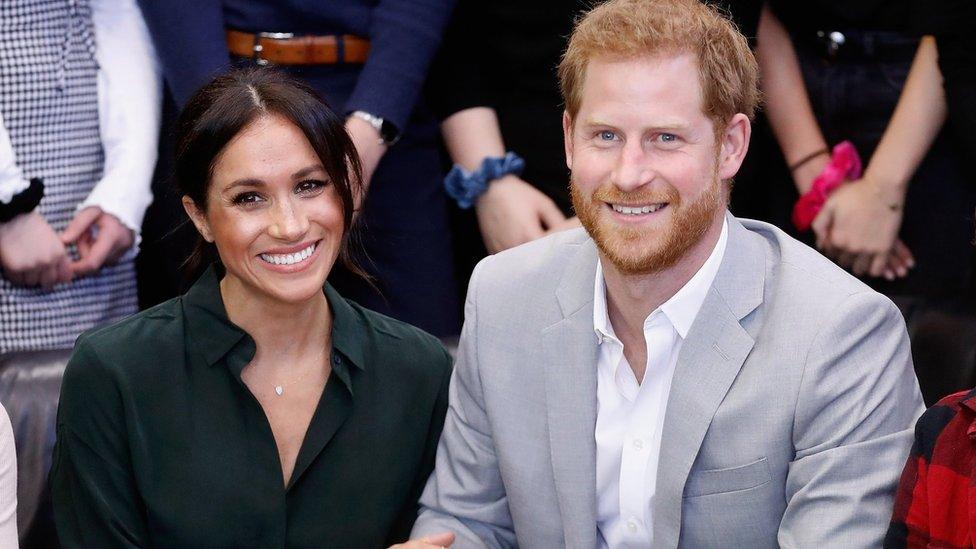
The Duke and Duchess of Sussex are expecting their first child in April
The Duke and Duchess of Sussex have had their first child and along with the excitement and nerves of being new parents could come an unwanted tax bill.
As US citizens, Meghan - and her baby son - are liable to pay US taxes.
The US is one of only a few countries to charge tax based on citizenship and not residency. Other countries that tax non-resident citizens include Eritrea and Myanmar.
This means that even though the duke and duchess will be living at Frogmore Cottage in Windsor, the US government still expects Meghan to file tax returns with the Internal Revenue Service (IRS) - the US tax authority.
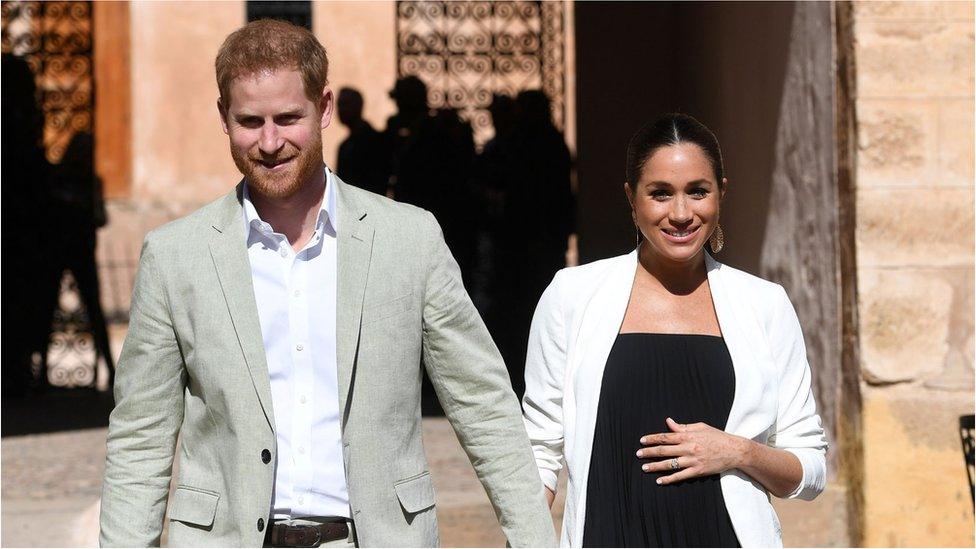
US-born Meghan will pass her US citizenship on to her child
That goes for Prince Harry and Meghan's baby too. Any American who has lived in the US in the last five years automatically passes on their citizenship to their offspring.
Meghan is expected to apply for UK citizenship, but that process takes time. Ahead of their wedding in 2018, Harry's communication's secretary, Jason Knauf, said Megan would be "compliant with immigration requirements at all times". That means she needs to live in the UK for at least five years.
Once she is a UK citizen, the duchess could renounce her US citizenship and her tax liability.
That process isn't simple either and it requires paying - you guessed it - more taxes. The US government charges an exit tax on all assets owned by anyone above the age of 18-and-a-half years renouncing their citizenship.
While the Duchess of Sussex will be able to renounce her US citizenship in a few years when she becomes a UK citizen, her son will have to wait until he is at least 16.
Under US law minors under the age of 16 , external are "presumed not to have the requisite maturity" to relinquish citizenship.
What is taxed?
The US and the UK have an agreement that gives US citizens a tax credit based on the amount of tax paid in the UK, but that's unlikely to erase either Meghan's or her son's US tax bill.
US citizens living abroad are obliged to file taxes each year reflecting their income, gifts over $15,797 (£12,080) assets over $200,000 (£152,930) and disclosing any foreign bank accounts and must pay applicable US taxes.
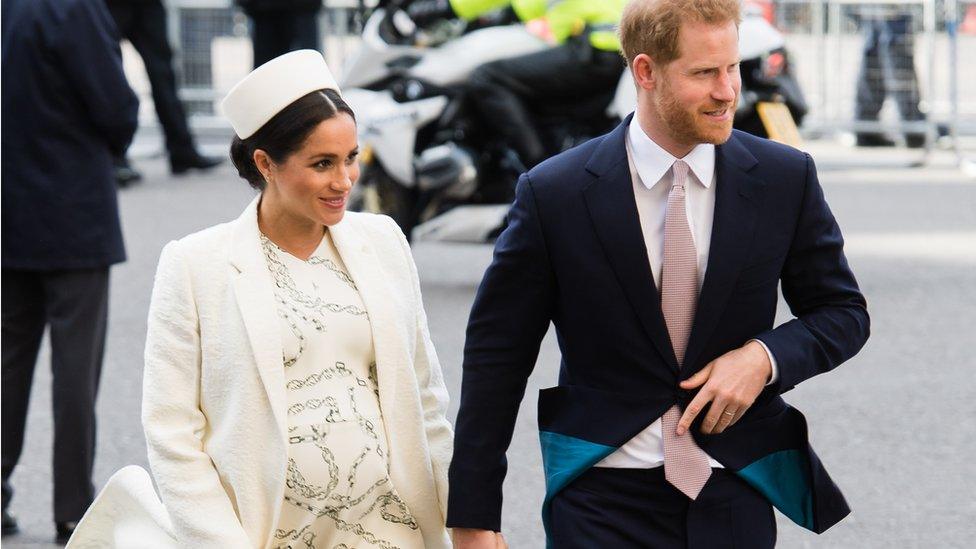
Meghan and her baby will have to report any gift they received over the past year if the total value is over $15,797 (£12,080)
For Meghan, this will include baby shower gifts. Her son's birthdays could become an accounting exercise.
Any future income from investments or trusts put in the child's name will also be taxable.
"All the royals are probably beneficiaries of various trusts and they will need to be careful," says Sam Ashley, US tax director at The Tax Advisory Partnership.
Mr Ashley does not advise any members of the Royal Family but says it's likely the advisers they do have started planning for this a long time ago, possibly even before the wedding.
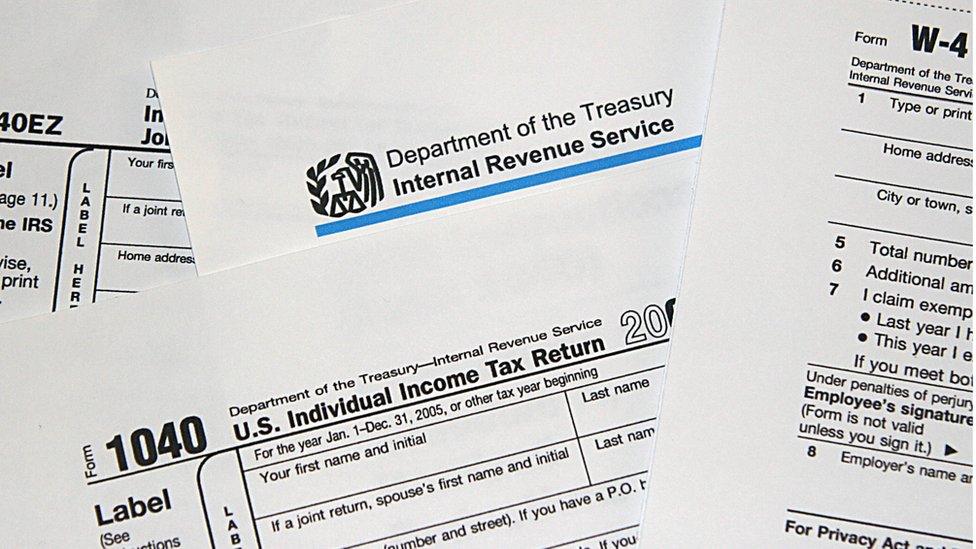
The US requires all citizens - regardless of where they live - to pay taxes
Royal income
As an actress, Meghan was reportedly paid $50,000 per episode of the show Suits. While she is no longer a working actress she will receive some payments whenever the show is rebroadcast.
The duke and duchess's expenses - such as living costs, travel, clothing - are covered by Harry's father for their role as working royals, representing the Queen. The Prince of Wales funds his sons and their families with income from the Duchy of Cornwall.
It's likely that when Harry accepts any money from his father he keeps his accounts separate from Meghan's to avoid giving the US tax authorities any insight into the Duchy or any other family trusts.
Any money given by Prince Charles directly to Meghan or his grandson will have to be declared to the US authorities and will be taxable.
The potential exposure of the Royal Family's complicated finances is a bigger risk than a large tax bill.
"The Royal Family likely have some quite complicated trust structures to pass down family wealth and it's unlikely they would want the US to look into that," says Mr Ashley.
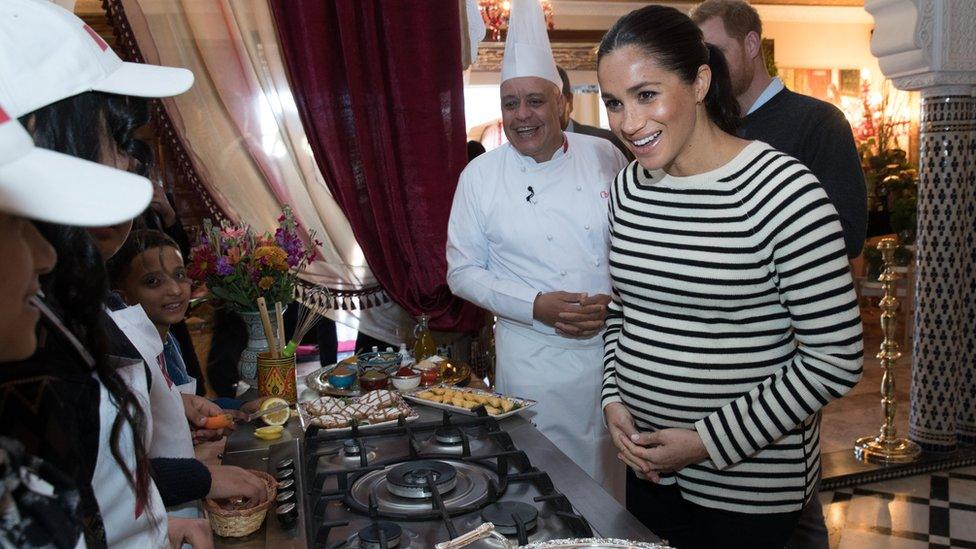
Advisers have probably been planning for Meghan's US tax return since her engagement was announced
Most married couples in the US file their taxes jointly, but the duchess will probably file as an individual to avoid revealing her husband's finances.
Children who earn under $2,000 can file their taxes with their parents', but a royal baby will possibly have gifts and inherited assets that will have to be declared to the IRS.
No matter what insight the US government gains into the Royal Family's finances - and experts stress that is likely to be limited - the public won't get that same view. US tax returns are confidential.
Renouncing US citizenship
But if both royals do give up their status as Americans they won't be alone. Many wealthy and well-known figures have given up their US citizenship and ditched US tax liability.
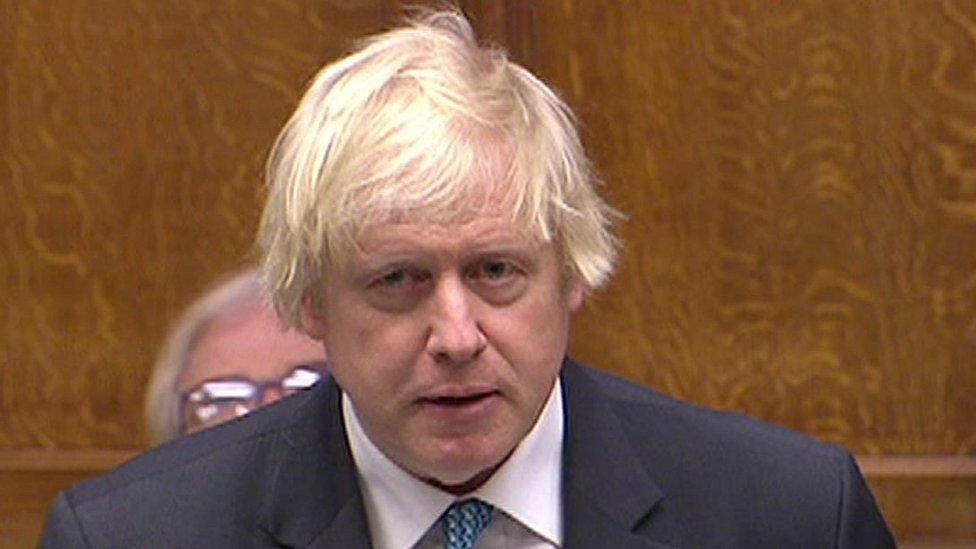
Boris Johnson, former UK foreign secretary
Boris Johnson
The former foreign secretary relinquished his US citizenship in 2016. He was born in New York to British parents. All children born in the US are automatically US citizens. In 2013 he called the US taxation system "absolutely outrageous" when US tax authorities demanded he pay capital gains tax on the sale of his north London home.
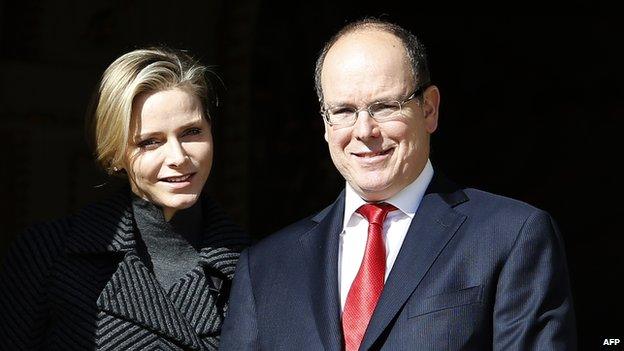
Prince Albert II of Monaco
Prince Albert II of Monaco
The son of US actress Grace Kelly found himself in a similar predicament to the one Harry and Meghan's son will soon face. His mother passed on her US citizenship which he renounced at age 21. He became Prince of Monaco in 2005.

Tina Turner
Tina Turner
The US-born singer voluntarily relinquished her citizenship after living in Switzerland for 12 years.
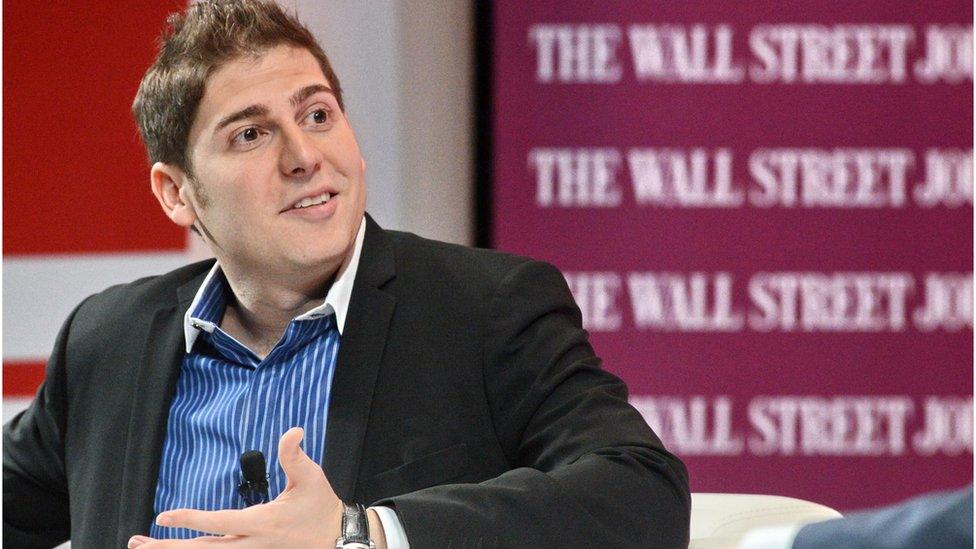
Eduardo Saverin
Eduardo Saverin
The co-founder of Facebook gave up his US citizenship just before the social network became a public company in 2012. He became a citizen of Singapore which does not allow dual nationalities.
- Published7 April 2019
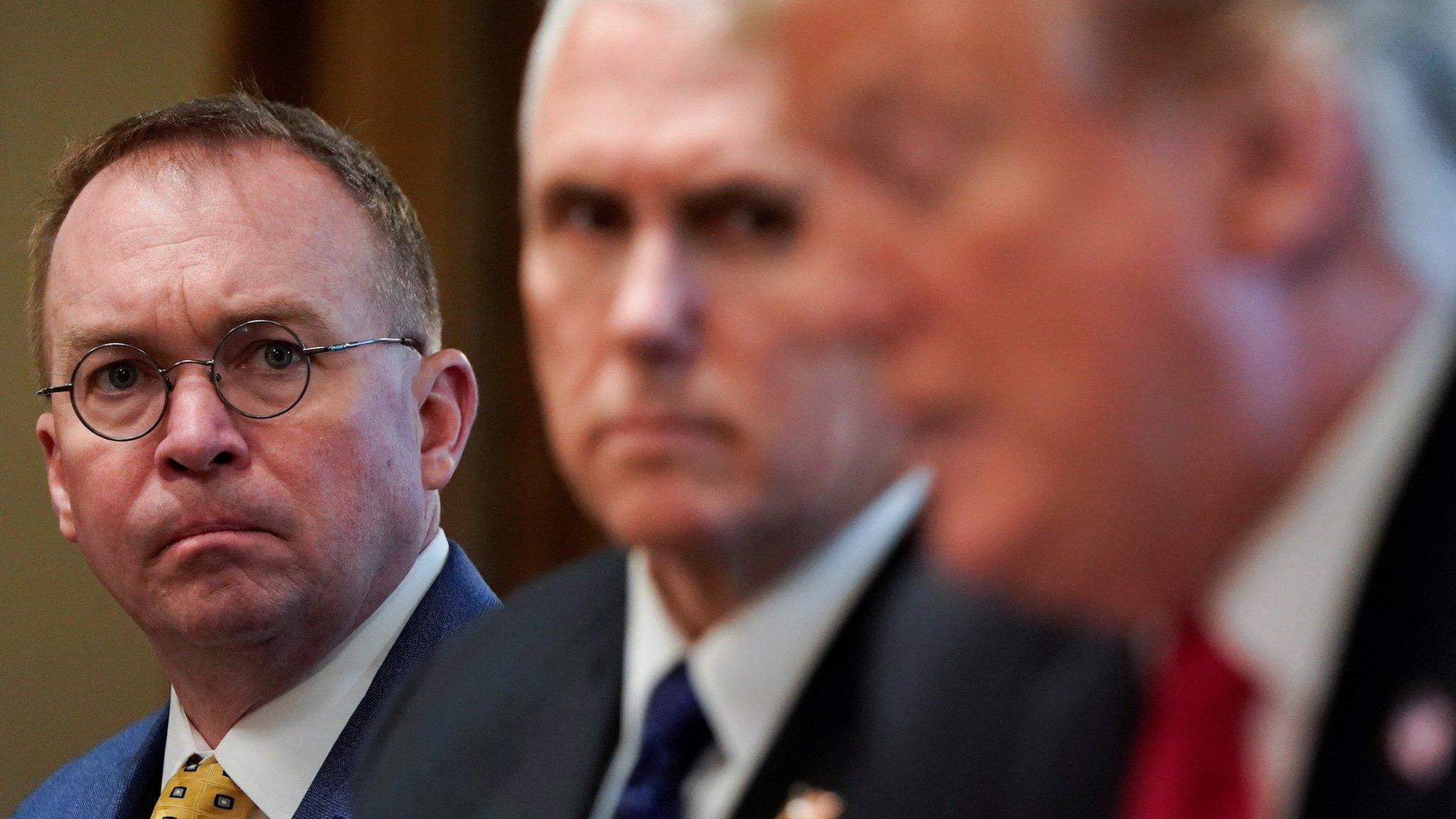
- Published4 April 2019

- Published9 May 2018
